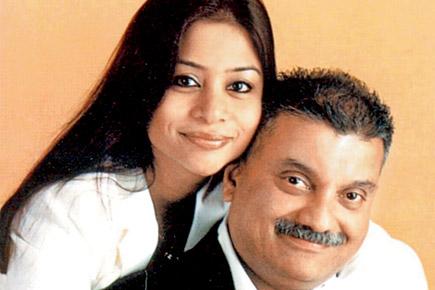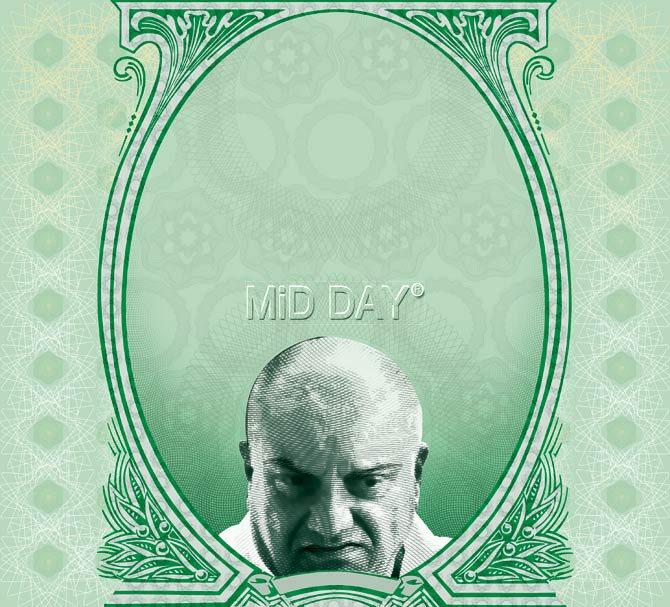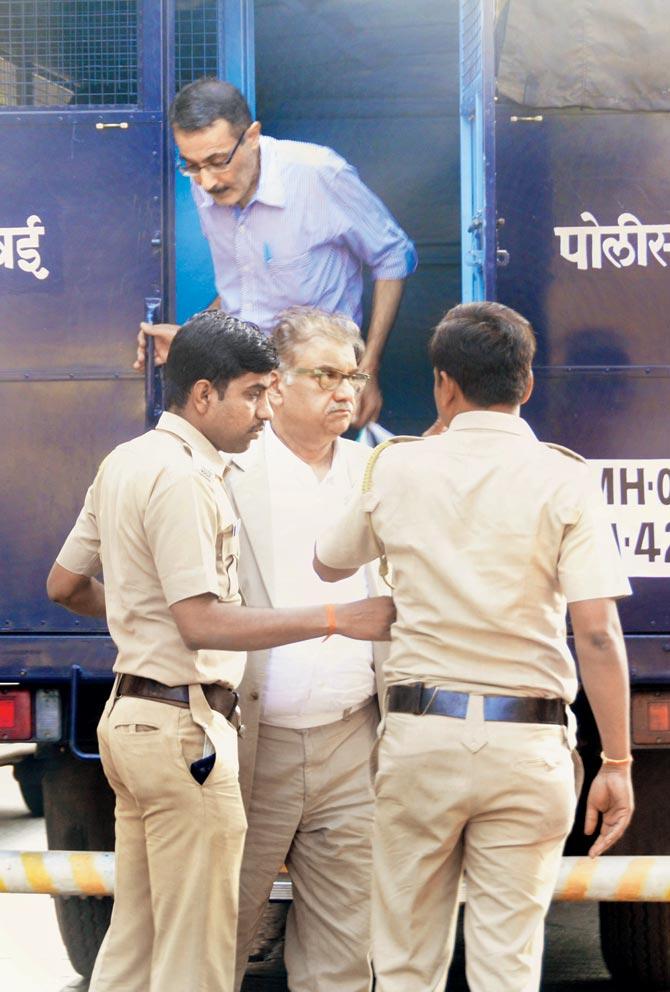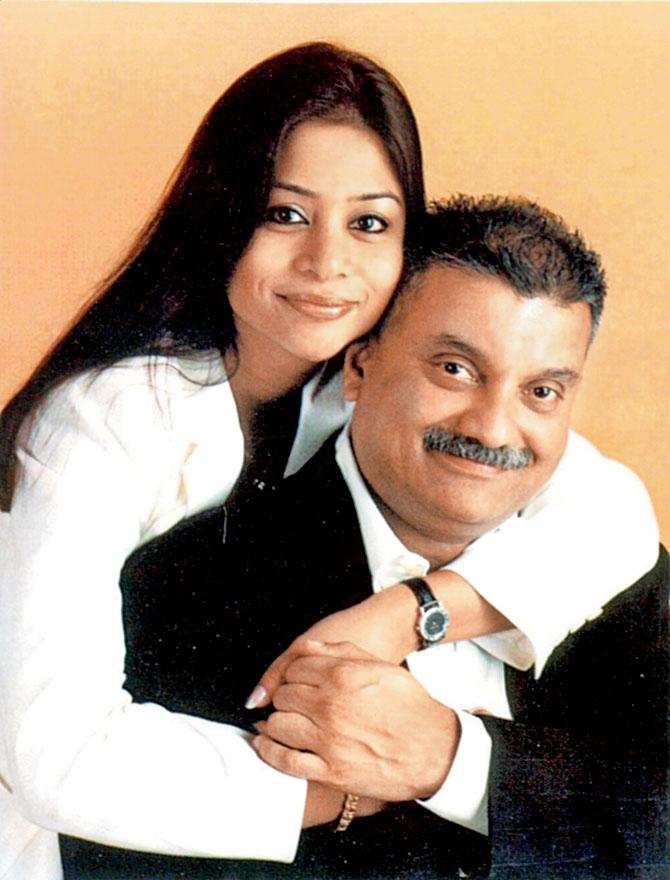Sunetra Choudhury's second book, 'Behind Bars' is a hard-hitting account of India's rich, famous and unprivileged, and their often traumatising and sometimes, amusing experiences inside prison


Illustration/Ravi Jadhav
Early last year, television journalist Sunetra Choudhury remembers receiving a photograph from Anca Neacsu, the Romanian wife of arms dealer Abhishek Verma, after she came out of jail. It was a picture of her wearing a Louis Vuitton inside prison. Anca would later tell Choudhury with chilling honesty: "If you steal Rs 1,000, the hawaldar will beat the sh** out of you and lock you up in a dungeon with no bulb or ventilation. If you steal Rs 55,000 crore, you get to stay in a 40-foot cell, which has four split units, Internet, fax, mobile phones and a staff of 10 to clean your shoes and cook your food." It's Anca's jail-time story that first led the journalist to unravel what incarceration meant to different people.
ADVERTISEMENT

Mukerjea being taken to Arthur Road Jail in March, 2016
Choudhury's second book, Behind Bars (Roli Books), which releases this month, is a hard-hitting account of India's rich, famous and unprivileged, and their often traumatising and sometimes, amusing experiences inside prison. Among the 13 chapters are the prison tales of politician Amar Singh, Maoist ideologue Kobad Ghandy, ex-telecom minister A Raja and television entrepreneur Peter Mukerjea, currently an undertrial in the Sheena Bora murder case.

Sunetra Choudhury. Pic/Hridayesh Joshi
"In prison, there are no rules. Even among the privileged, jail experiences could vary," says Delhi-based Choudhury in a telephonic interview. So, while Sahara's Subrata Roy may have been "the first person in the history of Tihar Jail to have the comforts of air-conditioning," Ghandy, who resides in the same jail, is forced to ration drinking water. Meanwhile, in Mumbai's Arthur Road Jail, the well heeled Mukerjea struggles to survive on his monthly allowance of Rs 2,500. "These are people I have covered through my career. Yet, so much about their life, doesn't get reported. Nobody bothers about what happens inside jail. People just think those who go there, deserve to be there, and that's the end of it. But, the stories that emerge from here are fascinating," says Choudhury, a news anchor and senior reporter, covering the Central Bureau of Investigation (CBI).
In the course of the year, while researching the book, Choudhury realised that every jailbird develops a "way of survival". For instance, Rajesh and Nupur Talwar, convicted by a CBI court and waiting judgement on an appeal filed in the Allahabad High Court for murdering their daughter Aarushi, had "used their medical skills as a bartering point inside Dasna jail". "They put up a small hospital inside Dasna and treated inmates there. It became their survival system," says Choudhury.
Her most challenging subject, she says was Mukerjea, whom she communicated with through a series of letters. "For starters, the communication process was tedious. Also, he is still in jail, and his story hasn't been resolved. So, there is always that tricky aspect of how to tell such a story. But then there are some stories that are never really complete," she says, adding, "I knew that Peter's account had to be written in such a way that it wouldn't impact the case, and yet, tell the tale of a high-powered CEO and how things changed for him suddenly."
The CEO in jail: Peter Mukerjea
So what does a millionaire CEO learn in jail? Maybe, it's about the lessons of simplicity, of enjoying the basics; in the midst of despair, finding someone to talk to and being appreciated. Sometimes Peter Mukerjea comes across as chatty and full of anecdotes, at others he says, 'What happens in Rio, stays in Rio'. Speaking of his 'fellow-travellers', Peter says: 'We share experiences, laugh and try and make the most of the learnings, each of us have had. I've made some useful contacts and they're mostly people I'd never have had the opportunity to meet, had I not been a guest of the "Govt of India" so I'm glad for that and it will make me a more circumspect person as a result. Some are incredibly rich and some incredibly poor and if I can, I will try and help those worse off than me.
Everyone here has a common goal - to get out and not have to come back - so staying on the right side of the law is very important for most people I've met. The jail experience isn't pleasant, it's tough and not many want to ever repeat it. How long these new acquaintances last is something for the future, although it's true to say that being in jail gives you a good understanding and realization of who your real friends are and who were never really your friends. It's only a very few of them who you would call friends - once you're out of jail. That becomes quite clear.'
On another day, Peter writes in a more sombre tone: 'There's not a lot of laughing that goes on here - just in case the authorities think we're having a good time and make life harder still for us. We share experiences and it's amazing to learn how many people are in jails even though they are innocent and should not be in here. One day things will get set right.'

Stuck in a murder case himself, the only thing Peter could help the others with were the facilities of language. It seems the aspiration to learn English extends to prison too. So the Briton, when not reading and writing himself, spends time teaching. 'I set them reading goals, followed by writing passages from newspapers and getting them to improve their vocabulary by learning 10 new words every day - of which they only ever retain five but that's 30 words a week, which is really good and tough to maintain.'
If there's one thing any jail teaches a white collar man, it's how to make do on an impossible budget. It's one of the first things that Peter says he learnt. 'The economy within the jail is unique given there's no cash - but a really effective barter system seems to work. Home-cooked food is a rarity and is therefore a prized possession for those that have it. There are all kinds of services available from a savvy barber, a masseuse, a yoga class that's fully functional, a laundry service, a darzee (tailor) and lots more. Necessity being the mother of… is a well trodden path here and adaptability and innovation is phenomenal. I get a monthly spending allowance of a princely sum of 2500 rupees, which I get each month from home by money order and which is credited to my 'tuck-shop' account and I get to buy goodies with that - biscuits, nuts, mineral water and such like, but making that last the month is an incredible challenge. So when I get out, I'm going to look forward to existing on a pocket money of 2500 per month and make do just fine.'
As a year closes in on him, Peter seems less sure as he was before of getting out of jail soon. While his defence team keeps stating the same arguments about his innocence, it's only the prosecution side where the case is progressing, new dates, new witnesses, and so that's where the media turns to for new leads to the Sheena Bora murder story. The press is only interested in new developments and Peter's position seems yesterday's story.
'I'm getting to write, which I'd forgotten to do, almost, and as there's precious little TV, I'm glad I don't get to see the madness that exists on the news channels, every night, particularly the one-man band who plays the same time each night.'
In his last note, he says: 'Suffice to say - I wasn't there, I didn't know, I wasn't involved in any way, I didn't hate Sheena nor was I against their relationship and I did not lie to my son when I told him that Sheena had left him. But thanks to Arnab and his decibel levels, he's put me in here - which is the price I'm paying - but over time I'm sure it will get resolved and I'll then come on his show and take him on, happily. Maybe you'll see my point of view.'
It's perhaps apt to end Peter's tale of captivity and legal journey with this anecdote he dug up.
'When Pandit Jawaharlal Nehru came home to his father Motilal Nehru and his friends, most of whom were lawyers, and announced that he had successfully completed a particular case for his client in 6 months which he was very proud of, Motilal Nehru took him aside and told the young Jawaharlal, "I put you through all 5 years of law school while fighting a case for a client and so completing a case in 6 months is nothing to be proud of! You won't survive as a lawyer for very long if you complete your cases so quickly.'' There lies a tale.'
Excerpted from Behind Bars by Sunetra Choudhury with permission from Roli Books
 Subscribe today by clicking the link and stay updated with the latest news!" Click here!
Subscribe today by clicking the link and stay updated with the latest news!" Click here!







